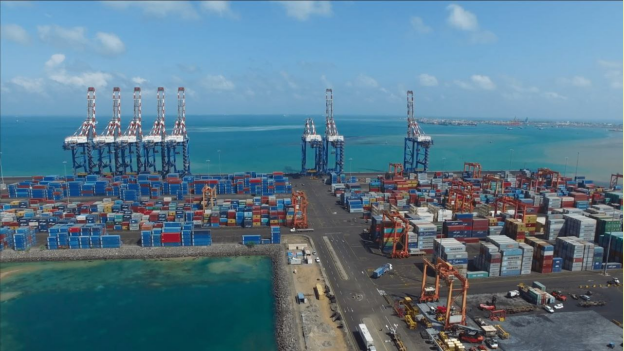
Over the past year, Ethiopia has intensified its efforts to secure sea access, a move the nation views as critical for ensuring sustainable development across the country. Landlocked since the secession of Eritrea in 1993, Ethiopia faces significant challenges in international trade and economic growth due to its reliance on neighboring countries for port services.
The United Nations Convention on the Law of the Sea (UNCLOS) establishes a framework that wisely balances the rights and responsibilities of both transit states and landlocked nations. While recognizing the full sovereignty of transit states over their territory, UNCLOS also acknowledges the unique challenges faced by landlocked countries in accessing maritime routes for trade and development.
A main provision of UNCLOS ensures that ships flying the flag of landlocked states are entitled to treatment equal to that accorded to other foreign ships within maritime ports. This principle of non-discrimination aims to level the playing field and prevent landlocked states from being disadvantaged in international maritime commerce.
Furthermore, UNCLOS affirms the right of transit states to take necessary measures to protect their legitimate interests. This provision recognizes that transit states may have valid concerns regarding security, environmental protection, or other matters of national importance.
However, these measures must be implemented in a way that does not unduly impede the access of landlocked states to and from the sea.
The convention seeks to foster cooperation and mutual understanding between transit and landlocked states, promoting a stable and equitable legal order for the world’s oceans.
Recently, have stay with the EPA, President of the Ethiopian Employers’ Confederation, Engineer Getahun Hussein stated that ongoing and effective diplomatic efforts, backed by global support, are needed to secure Ethiopian’s quest for sea access, emphasizing the necessity for the participation of all Ethiopians.
Hussein highlighted that gaining sea access is crucial for Ethiopia’s survival and requires strong diplomatic engagement to garner international understanding and support. He acknowledged the government’s ongoing efforts and emphasized the importance of underscoring historical contexts and the significance of this access, given Ethiopia’s large population and growing economy.
He argued that diplomatic efforts should not be the government’s sole responsibility. Drawing a parallel with the Grand Ethiopian Renaissance Dam (GERD) initiative, he urged all Ethiopians, including those living abroad and friends of Ethiopia, to unite in pursuing this essential national objective.
Getahun pointed out that being landlocked exposes a nation to external vulnerabilities, hindering its development. He questioned the viability of relying on foreign ports for substantial economic progress and emphasized the need to peacefully communicate this reality to the international community.
In this regard, several countries have acknowledged Ethiopia’s legitimate need for sea access, recognizing the constraints imposed by its geographical location and the potential benefits of improved maritime connectivity.
Discussions have largely centered on achieving this goal through peaceful and diplomatic channels, with a strong emphasis on respecting international law and the sovereignty of neighboring states.
French President Emmanuel Macron said his country supports Ethiopia’s quest for access to the sea through discussion and respecting international laws and neighboring countries.
During his visit at Addis Ababa, President Macron expressed his readiness to support Ethiopia’s legitimate quest for sea access.
He said France is interested in playing its part in facilitating ways in which sea access can be achieved responsibly through talks, in a way that recognizes international laws and respects neighboring countries.
Abiy said the two leaders have thoroughly discussed his country’s pursuit of peaceful access to the Red Sea. He said the French president accepted Ethiopia’s request for support in its quest for sea access through international law, peacefully and diplomatically.
Furthermore, Israeli Ambassador to Ethiopia, Abraham Negussie, has voiced his support for Ethiopia’s efforts to secure sea access through peaceful and diplomatic channels.
He emphasized the fundamental importance of such access for the landlocked nation, particularly in sustaining its growing economy and benefiting its large population.
The Ambassador expressed optimism that nations committed to justice would recognize and addresses Ethiopia’s need for a sea outlet, arguing that a country with such a significant population should not be denied this right.
He further highlighted the critical role of sustainable sea access in accommodating Ethiopia’s expanding economy, calling for a resolution to the issue.
In a recent interview with Gazetta Plus, Italy’s Ambassador to Ethiopia, Agostino Palese, voiced his support for Ethiopia’s desire to gain access to the sea, advocating for peaceful negotiations as the optimal solution.
Ambassador Palese believes that Ethiopia’s pursuit of sea access is justified and sees it as an opportunity for growth. He echoed Prime Minister Abiy Ahmed’s call for genuine and peaceful dialogue to resolve the issue. He remains optimistic that Ethiopia can secure trade access to the sea through negotiation, which he considers vital for stable trade.
Addressing regional security, Ambassador Palese acknowledged the destabilizing effects of the Red Sea crisis, particularly the Houthi attacks, which have disrupted trade and impacted Italy’s imports.
He also emphasized Ethiopia’s potential as a stabilizing force in the Horn of Africa, contingent on resolving its internal challenges. He further highlighted Italy’s ongoing commitment to Ethiopia through significant investments in development and humanitarian assistance.
In her part, Yasmin Eriksson, a member of the Swedish parliament and Deputy Head of the Defense Committee, noted that the Sweden government supports Ethiopia in its efforts to peacefully gain access to the sea.
During member of the European nation’s parliament meeting with Ethiopian parliamentarians in Addis Ababa, Eriksson reiterated her country’s backing for Ethiopia’s quest for sea access.
Engineer Getahun further mentioned that the significance of ensuring that neighboring countries recognize and support Ethiopia’s needs.
Regarding Eritrea’s secession, the President remarked that it was an injustice imposed without the Ethiopian people’s consent, resulting in a lack of opportunities for mutual economic and social integration since then.
He criticized those who sought to divide the culturally and linguistically connected populations of Ethiopia and Eritrea, advocating for a vision of shared prosperity. Despite past divisions, he expressed his belief in a strong desire for closer ties and collaboration between the two nations.
He reiterated the importance of continuous public diplomacy to strengthen economic ties, expressing confidence that the Eritrean people also desire collaboration with their Ethiopian counterparts, a sentiment echoed by Eritrean intellectuals.
BY FIKADU BELAY
THE ETHIOPIAN HERALD SUNDAY EDITION 4 MAY 2025



